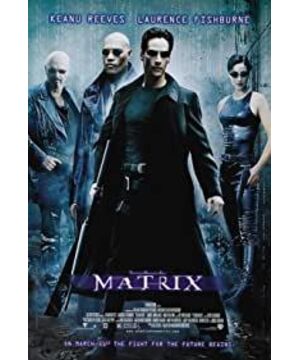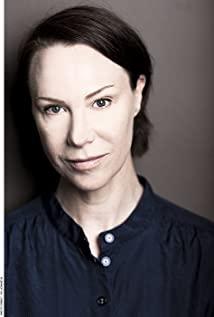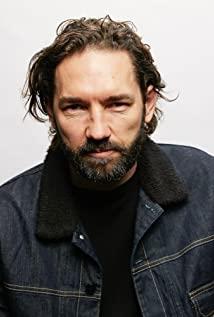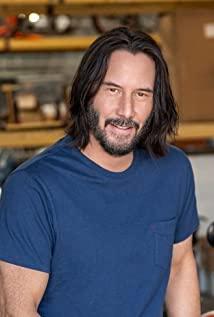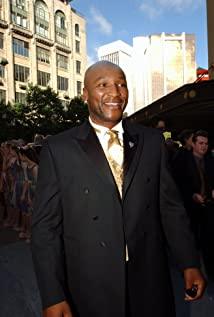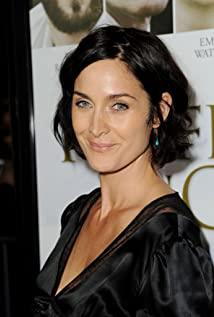"Know yourself." The Latin version of this sentence is written in the first episode of Matrix, on the lintel of the Prophet’s kitchen, Know myself. One should know Own. It sounds very simple, but going through it is exactly what all enlightened beings in this world do and reach.
Is it easy for a person to understand oneself? Or as it is easily misunderstood-is it just about yourself, selfish? Or is it a question about the reality of life? Is this the same problem?
"who am I? What determines that we become such different living individuals? What determines that we have such different personalities? When did we start and why we have different beliefs, questions and explorations, dreams and wishes on different paths?
Where am i from
What am i here to do?
What is the meaning of life?
Am I my own master? If I were my own master, what would I be? Can I control the thoughts, emotions, emotions, and wishes that pass through me, control love or unlove, happiness or unhappiness, and let the thoughts and emotions cooperate in this way or stop in that way? So why is the mind so difficult to achieve balance but easily lost? Why even if you have all the things you want but feel that you don't get what you really want, life is still missing, not free, and not complete?
Am I my own slave, the object of life? If I am a slave, who is the master? Everyone will die from old age, sickness, death, love, hatred, and sorrow, who wrote the program? Do people who write such trivial programs feel bored or do they have love and compassion in their hearts? "Horse, 10 years; man 100 years; tortoise 1000 years..."
Where does the universe come from? Are me and other human beings a group of phenomena that inevitably or accidentally or naturally occur in the development of the universe? It is still an observer who is completely opposite to the environment. Is our mission to obey as much as possible, or to rebel against the procedure as much as possible, or to observe as much as possible without leaving a footprint? Should we deprive others to satisfy ourselves or deprive ourselves of satisfying others? Do we have free will, or do we have no will at all and no choice?
An intelligent and emotional creature asks who he is? Ask the direction of life? Are we evolving or corrupting as a collective? As individuals, can we choose our destiny? A cosmic dust-like small physical and mental polymer wants to ask questions about the past, present and future, has it violated the law of creation? Because there seems to be no animal other than humans to look back on themselves and ask questions about the meaning and possibility of existence.
In the past, present and future, life has flowed like a river, and there are many "people who already know". But no matter how many enlightened persons, enlightened persons, or prophets, oracles, have answered these questions partially and completely in the world, and no matter how many systems called Unveil Apocalypse or Enlightenment, they provide us with reference selflessly. Answers, training methods, road directions, and writing such as "LP of the Eternal Spiritual Land".
Each of us still needs to carry our own bag to start and practice our own answer sheet. There is no ready answer to copy, just as you can't copy other people's life feelings. Our answer sheet returns to our own state of life in every behavior and every intention and thought, moving toward light or darkness, feeling pain or sweetness, and no one else will ever score any more.
Living in our time, there is no religion that opposes, deprives, or prevents us from free exploration with absolute authority. On the contrary, all of them should help us explore and practice for no reason. In fact, they do just that. They stand in a row and wait for you to dig. However, the problem of our time is that not only is spiritual and religious pluralism, but material pluralism has become the focus of life. Our collective belief that material will give us all satisfaction and save us from unpredictable dangers. Dignity, comfort, superiority and happiness. No matter how much pain this faith brings to us, we still believe that we will continue to do it. Once adolescence is over, people will be extremely busy. Work, love, buy a house and buy a car. Few people will continue to ask questions about life itself.
"Know yourself", what is life? What is the foundation of true happiness? Can the pain be completely relieved, or wait for him to come to study? It is a problem that will only be reviewed when it is reduced to a niche, a broken relationship or a specific low ebb. No matter what, if you have the opportunity to look back, low ebb is not a bad thing. What's terrible is that when you lose love, you are busy looking for another love to comfort you without looking back at life's desires, what is the nature of desires. (The essence of desire is a sense of lack, a requirement for some kind of satisfaction. Satisfaction is based on feeling. The deepest feeling is intuition. Intuition seeks to look forward to, but when it looks out, it can only find something similar. Everything we try to capture is nothing but similar things. That is completeness. To be a perfect person.)
Socrates said that life is nothing but a disease. When his life ends, he will be happy and be happy. Joy from the heart, because he is about to heal! This is the deathbed of the enlightened philosopher. For a deeply polluted person like me, the end of life is to fall into the dirt and bad habits of your own mind, and the homework before you can finish it. For a pure heart, the end of life is to fall into purity. It all depends on what you practice, life Slowly surging in that direction. Nothing is more important to me than this healing. Live as a healer. As a happy person who is not oppressed by any pain, understands the truth, and therefore lives purely without self and altruism, it is so glorious and glorious is dead.
Before exploring this question, I would like to consider a few principles that are helpful:
First, we know that the whole is greater than the sum of its parts. Therefore, the attribute of the whole cannot be found in the attribute of any part of the whole. As a phenomenon of life, "I" is not a mathematical problem. What if "I" want to deeply understand the characteristics of a person's life? Why am I obsessed with him? The smart way is probably not to cut him in half, three or 32 to study. Even if you use the most gentle and delicate knife to cut a person lovingly, and put them together according to categories, then it seems that something is missing, at least the original structural relationship is gone. How can I get it back? Even if we can connect every blood vessel, fiber, and bone with the most meticulous technique and the most precise surgical knowledge, there is still something missing, at least there is no life. Some of the most important things are gone. Only then did we discover that important things are invisible and intangible. If someone wants to prove that the soul does not exist, they call a living person and a dead person. There is no difference in the weight of the two states, so it proves that the soul does not exist. This kind of logic can also be said that life does not exist, the whole does not exist, and logic does not exist. When someone teaches me to observe whether "I" is in a particular part of my body? If the "I" is not found in any part, it proves that the "I" does not exist. Another school teaches people to divide the human body into 32 components such as nails, hair, feces, urine, etc. to observe. It is undeniable that these parts constitute our material parts. If the qualities worthy of love are not found in the parts of feces, urine, blood, and hair. Then, it proves that the trait worthy of love does not exist. When I heard these two teachings, I ran fast, because in my opinion they only proved one thing, that is, logic can appear absurd and arrogant in front of the soul.
Second, we have to admit that language has at least two limitations when describing absolute truths: First, language is based on concepts, and concepts are labels for experience, which means that when you have never experienced a label You can’t get the content from your mind. The only thing you can get is to imagine it, or to replace it with another concept more quickly. This is what we often do, which makes our mind always operate within its own shielding limits, rejecting phenomena as new for the sake of efficiency, and everything is new to experience. Experience has never repeated itself. Every experience is completely different. This apple and that apple are completely different, but we can all call them apples. If the apple happens to be a kind of uneaten fruit or unplayed mobile phone. , We cannot build the experience of Apple from the round, smooth, Wonderful Delicious, this is the language is limited by the concept.
For this reason, although there are many masters and sects under the banner of the "Vipassana" school in Myanmar, they all hold fierce and tit-for-tat propositions, but they unanimously advocate not discussing concepts such as Nirvana. Because the object of Vipassana must be the real experience of the moment, not the concept, memory, or imagination. The inexperienced concept cannot be intuitive, it can only lead to imagination and miss the practice on the road. What we love to talk about most is "bitterness", because in the experience of Vipassana practitioners, there is almost nothing in the world that is more bitter, sweeter, lighter, and free than "passing through". However, a person without Vipassana experience hears " The experience of "suffering" projected in the heart may be a negative thing.
To give another example, for example, what impression will you give you when you say the word "mindfulness"? It might be saying Recite, Repeat, Reminder, or Remember? Remembering something and then constantly reciting it... Remembering, chanting in my heart to reinforce it... If you really understand it this way, it's really terrible. "Sati" in Pali language-Sati has two meanings, one is memory and the other is awareness. The "mind" of mindfulness refers to the latter-awareness. Samma Sati maintains undifferentiated awareness of the current physical and mental reality. If one second has slipped back to memory, one second forward is an imagination or plan. , All have lost righteous thoughts, settle down with the current flow of mind and body changes, without naming, labeling, or judging, and seeing it as it is. Be aware at all the time. This is a good practice. It is impossible to have mindfulness on the road to liberation and enlightenment. If you literally understand it as "remembering something right", the direction is completely wrong. When arising, the mindfulness of separation is the root of anger, and it can't be reached anywhere except Samsara.
What does "right view" mean? Hold the right opinion? Some people want to say that his opinion is the most correct, supreme, most authoritative, and most powerful, because it is said by the enlightened person. This opinion includes several elements and so on. . If you think that right and wrong are opposed, high and low, good and evil, light and dark, right view is a ruler that can be distinguished, then there is no right view, right view is non-duality and non-dual.
Existence has never been opposed, everything is changing, and changing through life causes feelings. Feeling swings at both ends of the balance. Whether it is grasping what you want or rejecting what you don’t want, changing is changing and it obeys it. Instead of your will, desire can only multiply suffering, but suffering can be penetrated. Right view is to see the Dharma through the unique eyes through them, using pureness without a ruler or color filter. The mind observes all phenomena inside and outside.
Another limitation of language is that language is linear, but existence is not. All operations run at the same time. Existence is more like Heisenberg’s matrix. Heisenberg insists that truth can only be understood by the mind of a mathematician and can only be described in the closest way with his matrix. The principle can only be expressed by formulas. He hates being The science of popularizing language and images believes that they are too far from the truth. A highly developed mind can indeed transcend the limits of language and images to adapt new thinking tools-matrices and formulas, but compared with a pure mind, the mind is still a blunt weapon.
Because it is similar to language, thinking is also linear. Although thinking is much more capable than language, flashing back and forth, circling and diverging quickly can turn oneself around and trip oneself again. Since two things cannot be thought of in the same minimum unit of time, thinking is complicated. It only proceeds linearly.
However, consciousness is not. This seems to mean that consciousness can be equal to existence, or has the potential to equal existence, and thinking and language can only describe them closely. It seems that two-dimensional things can only be a projection curve for three-dimensional things, an approximate description.
This does not mean that language is useless and will inevitably ruin us. On the contrary, what language does for us is as if Morpheus did it for Neo. He said: "I told you I can only show you the door , you have to walk throught it. "I can only take you to the door, you have to walk in by yourself.
What Morpheus did for Neo was to find him to liberate him, heal and train, and then trust him infinitely. Even if you don't trust yourself, he trusts you at his own expense, because this is a belief based on true knowledge.
(This line is really cool, and every time I hear it, I have a lot of emotions. Speaking of Matrix, I recite many lines. This movie is full of metaphors. Both the whole and the details are full of practitioners, practitioners, and paths. It’s a metaphor, and the spread is extremely beautiful. There are too many good movies, and very few old movies can be seen twice. However, Matrix is still interesting after seeing double digits.) The
third principle is to be an authority and bird opinion. When inconsistent, trust Asuka
View more about The Matrix reviews


